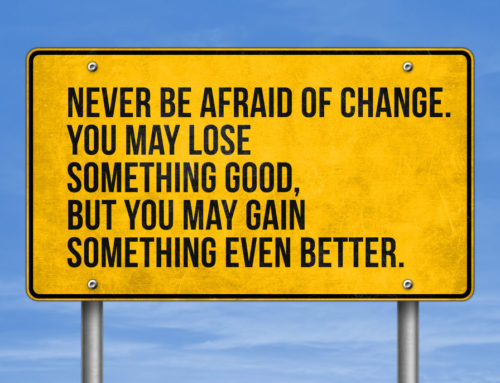 Overindulgence in rich foods and alcohol for the weeks leading up to and over Christmas is famous for making us feel somewhat ‘bleeeurgh’ come the first week or so of January, as we tip back into the work routine with an aching head and a bloated belly. We know we need to detox, though many of us lack the motivation, while others of us go overboard with our salads and gym sessions in an attempt to overcompensate. So far, so January…
Overindulgence in rich foods and alcohol for the weeks leading up to and over Christmas is famous for making us feel somewhat ‘bleeeurgh’ come the first week or so of January, as we tip back into the work routine with an aching head and a bloated belly. We know we need to detox, though many of us lack the motivation, while others of us go overboard with our salads and gym sessions in an attempt to overcompensate. So far, so January…
The prolonged exposure to family and loved ones…
But it isn’t just food and alcohol that can make us suffer post-Christmas. For many of us, January marks the onset of an emotional hangover caused by prolonged exposure to family and loved ones. Days of reverting back to our childhood patterns of communication when parents come to visit, too long cooped up with an ungrateful teenager you’ve spent a month’s wages on, or feeling as though you must have bite marks in your tongue from having repeatedly stopped yourself saying things you’ve wanted to say. By now, you’ll almost certainly be craving fresh (conversational) air!
Relief is in sight
The bad news is that a lie down and some paracetamol probably aren’t going to cure your emotional hangover. The good news is that relief is in sight, and you don’t even need to start a running regime or go on a juice cleanse.
In our War to Peace workshops, you get to experience several ways of changing how you’re feeling. If you are suffering from an emotional hangover right now, the chances are that you could benefit a great deal from being in charge of how to change your feelings whenever you want to. Let’s look at what you can do right now:
Action you can take right now
Do you find yourself telling anyone who asks about your Christmas with horror stories of your in-laws’ behaviour? Are you feeling resentful towards someone for how they treated you? Perhaps you’re beating yourself up about what you said when you’d had one too many? Well if you are, it’s little wonder you’re feeling a bit rubbish! Whilst denying these concerns exist isn’t the answer, dwelling on them definitely isn’t. So when you notice yourself on a downward spiral of thought about what happened over the festive season, consider setting yourself this challenge instead – make a list (mental or on paper) about the moments you most enjoyed and what made you laugh over the holiday. If you’re really struggling to find any, consider how you could share humourously just how awful it was. By changing the focus of our conversations with people from complaining to humour, or from concern to asking for help, we can really shift the way we feel NOW about what we experienced over Christmas.
Your emotional feeders
We all know the effects of feeding our body too much of the wrong sort of food. But what about your emotional feeders? Chances are that the holidays included some company and activities that left you feeling drained, strained and unresourceful. Happily, the cure is a lot more fun than pints of water and a dose of Gaviscon. If you’ve been feeding your emotional state with things that haven’t been good for your wellbeing, it’s time to start feeding it with things that make you feel great. That might be spending time with positive friends, dancing round the kitchen to your favourite music, going to see some comedy or taking a walk somewhere beautiful. Whatever activities make you feel good, give yourself permission to consciously choose to feed your emotional state with those and see how quickly you start to feel better!
Your body has an important message
Finally, notice what your body is doing right now. Are you slumped? Are your shoulders tensed? Is that a frown on your forehead? Our bodies and our minds are finely tuned to each other, so our physiology has an enormous effect on the way that we are feeling. Right now, shift your posture to one that you would adopt if you felt energetic and confident and notice the difference in how you feel. If your breathing is shallow and fast, consciously slow it down and take deeper breaths. You could also try holding a pencil horizontally between your teeth as you sit at your computer (maybe not if you’re in a shared office!) – this uses the same facial muscles as smiling and research has shown how this ‘faked smile’ still results in higher happiness levels. If you don’t believe me, see Amy Cuddy, Harvard Business School professor and researcher explaining why these physiological changes work here.
By shifting your emotional state in these ways, you’ll be well on the way to curing your emotional hangover – no ‘hair of the dog’ required!
Over to you
- Begin noticing the impact of your slumps, sighs and eye rolling on how you feel, and consider what you might do instead.
- What would be your personal favourite positive emotional feeders? Writing them down can provide you with great inspiration if you’re feeling disempowered in the future.
- For more ideas on how to change your feelings towards someone, have a look at this post, this one or this one.
Could you, or someone you know, benefit from War to Peace®?
If you, or someone you know, could benefit from learning more about how to avoid and recover from emotional hangovers, consider War to Peace®. These workshops can be held in your workplace and away from it. Spaces for our next public course that anyone may attend can be booked here:





Leave A Comment